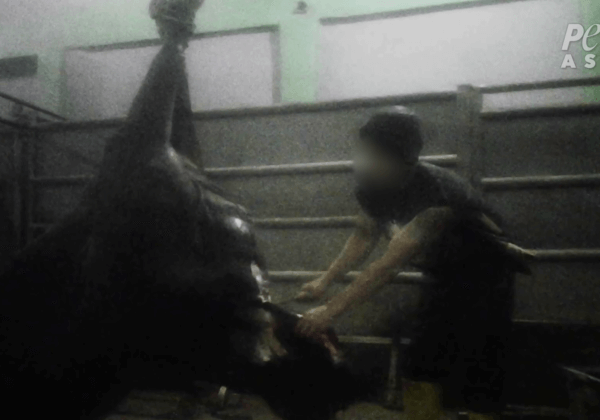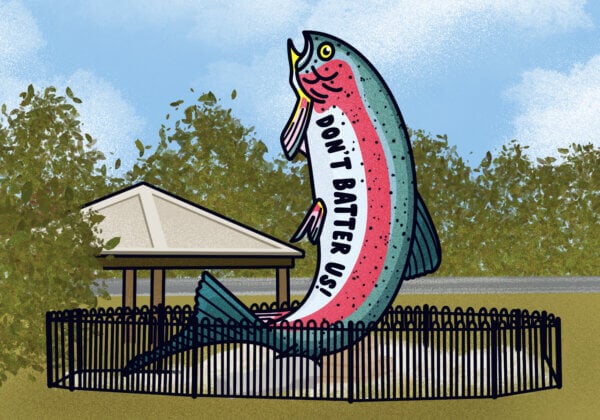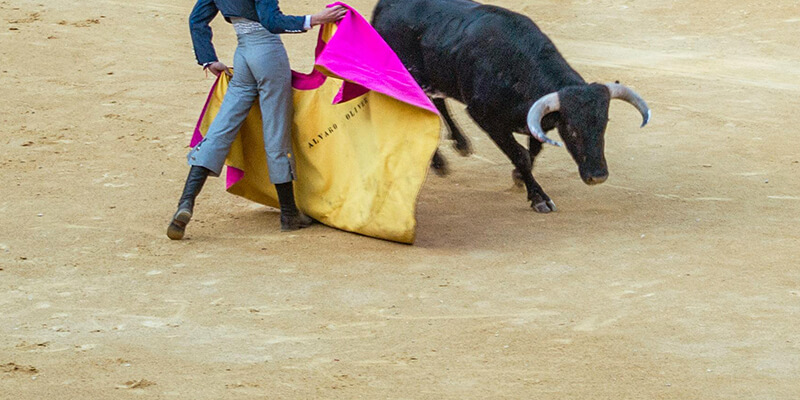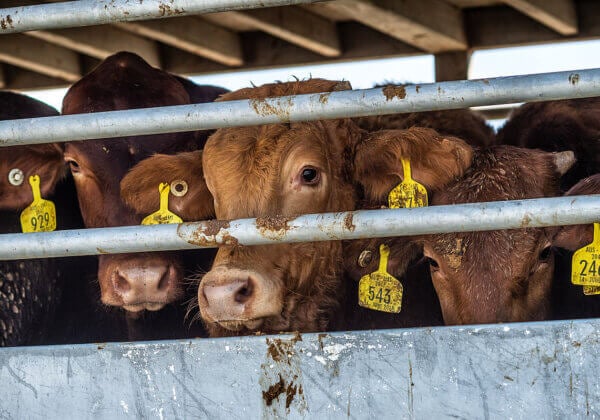PETA ‘Mermaids’ Make a Splash at Sydney Fish Market
Ahead of the biggest seafood sale of the year, a group of PETA “mermaids” made a splash at the doorstep of the Sydney Fish Market by asking people to consider who is on their plate this Christmas.
The mass slaughter and consumption of sea animals stands in opposition to the meaning of Christmas, yet millions of aquatic animals are killed for Australian festivities. The Sydney Fish Market even has a 36-hour “festive frenzy”, during which it expects to kill and sell 350 tonnes of sea life.
 Chrissie Hall
Chrissie Hall
Fish are more like us than we think.
As humans, we instinctively feel compassion and empathy for animals, but we’re taught that it’s OK to kill and eat some of them – especially those who look very different from us – without a second thought as to who they are as individuals.
This type of prejudice is called speciesism. However, just because someone has fins instead of feet doesn’t make them any less deserving of respect!
Dr Sylvia Earle, one of the world’s leading marine biologists, said, “I wouldn’t deliberately eat a grouper any more than I’d eat a cocker spaniel. They’re so good-natured, so curious. You know, fish are sensitive, and they have personalities, they hurt when they’re wounded.”
 Chrissie Hall
Chrissie Hall
Fish have complex social lives and distinct personalities. They can learn and remember new information and develop profound personal relationships. They experience pain and fear when they’re harmed. Some fish can learn to avoid nets or recognise individual shoalmates.
Fish Feel Pain
Scientists agree that fish feel pain and suffer just as we and other animals do – a conclusion hardly surprising to anyone who has seen a fish struggling and fighting for their life when pulled from the water.
Fishers toss the fish they’ve caught into piles of ice on boat decks, where they slowly asphyxiate, freeze, or are crushed to death – horribly cruel and drawn-out ways to die. Scientists estimate that it can take up to 15 minutes for them to lose consciousness. The gills of others are cut or their throats and stomachs are slashed open while they’re still alive.
Those who are pulled up from deep waters often suffer from rapid decompression, which can cause their eyes to pop out and force their internal organs out through their mouths. And in catch-and-release fishing, up to 43% of fish don’t survive the trauma of being impaled with a hook and hoisted out of their natural environment.
Meanwhile, farmed fish spend their lives in cramped, filthy enclosures and commonly suffer from parasitic infections, diseases, and injuries.

Fishing Is Destroying the Ocean
There’s also a grave environmental cost associated with humans’ appetite for fish flesh: fishing vessels are decimating the ocean, leaving it on the brink of ecological collapse. Massive trawlers with nets the size of football fields destroy coral and marine plants on the seabed and scoop up all life in their path – including dolphins, turtles, and seals.
In addition, there’s a huge 80,000-tonne floating patch of garbage in the Pacific Ocean, and 46% of it consists of fishing gear, including nets.
To learn more, watch Seaspiracy on Netflix this Christmas break if you haven’t already!
 Chrissie Hall
Chrissie Hall
Select Vegan Options
Eating sea animals is not sustainable or ethical, so please leave them off your shopping list this Christmas.
So many delicious vegan seafood options are readily available that don’t require you to step foot into a stinky market full of corpses on ice. Try some of them instead and extend your goodwill to all animals this festive season.






